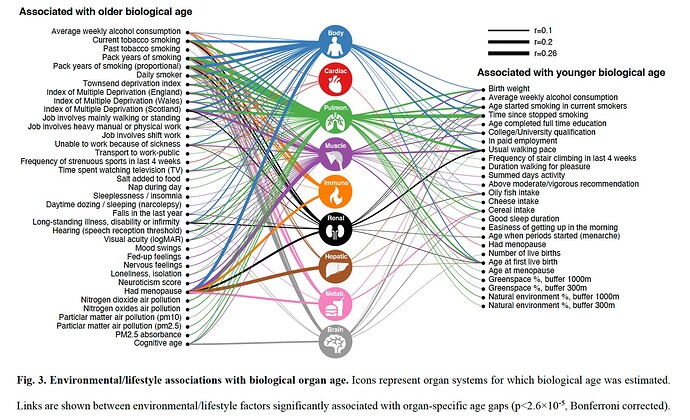An interesting new paper pre-print:
Biological aging of human organ systems reflects the interplay of age, chronic disease, lifestyle and genetic risk. Using longitudinal organ imaging and physiological phenotypes from the UK Biobank, we establish normative models of biological age for 7 body (cardiovascular, pulmonary, musculoskeletal, immune, renal, hepatic and metabolic) and 3 brain (gray matter, white matter and brain connectivity) systems. We find that an organ’s biological age selectively influences the aging of other organ systems, revealing a multiorgan aging network. Brain age is most strongly influenced by the biological age of the cardiovascular, pulmonary and metabolic systems, whereas the musculoskeletal system is an in-degree hub of the aging network. We report organ age profiles for 16 chronic diseases, where advanced biological aging extends from the organ of primary disease to multiple systems. Advanced body age associates with several lifestyle and environmental factors, leucocyte telomere lengths and mortality risk, and predicts survival time (AUC=0.77) and premature death (AUC=0.86). Our work reveals the multisystem nature of human aging. It may enable early identification of individuals at increased risk of aging-related morbidity and inform new strategies to potentially limit organ-specific biological aging in such individuals.
